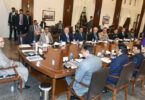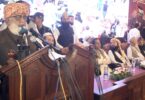Dr. Waseem Hassan
Article or research paper retraction occurs when a published scientific paper is withdrawn by the publisher or the authors due to various reasons. An article is retracted under various circumstances. Firstly, retraction occurs when the data presented (in the paper) is intentionally fabricated or falsified.
Secondly, if the paper includes substantial portions of text or ideas that have been copied from other sources without proper citation, it may be retracted. Additionally, disputes about authorship or the inclusion of individuals who did not significantly contribute to the research as listed authors can lead to retraction.
Furthermore, if there is evidence indicating that the peer-review process was compromised or manipulated, retraction may be warranted. Finally, errors in the research methodology, analysis, or interpretation that significantly undermine the validity and reliability of the results can also be grounds for the retraction of an article.
According to Research Article published in international scientific research journal “Nature”, Pakistan has the 2nd highest retraction rate. This is a matter of grave concern for Pakistan, that requires immediate attention and strategic intervention. The surge in the number of retractions in recent years poses a significant threat to the credibility of academic research in our country.
As papers play a pivotal role in securing degrees, jobs, and promotions, it is imperative that we establish clear and comprehensive policies to navigate the consequences of paper retractions in these crucial domains. We should implement a comprehensive approach to address the implications of paper retractions on academic qualifications and professional considerations.
Firstly, it is essential to clearly define the criteria under which a degree awarded based on research work may be subject to reconsideration or reversal in the event of paper retraction.
There is a need to specify the procedures for addressing situations where a paper’s retraction raises concerns about an individual’s professional qualifications.
Secondly, guidelines should be formulated for employers to assess the impact of paper retractions on job placements. These guidelines should take into account the nature of the retraction and its relevance to the individual’s role. In fact, criteria should be developed for evaluating the impact of paper retractions on promotion decisions.
Proactively addressing this issue and establishing clear guidelines, we can promote accountability, maintain the credibility of academic and professional achievements, and contribute to the overall integrity of our institutions. Pakistan’s high rate of withdrawing academic research article has many effects. It can significantly affect the scientific community, universities, and how the country is seen by others.
Furthermore, it will also exert negative effects on the credibility, reputation, academic integrity, undermining trust, impact on grants, impact on researchers, educational institutions, collaboration concerns, and loss of public trust.
Addressing these issues requires a concerted effort from academic institutions, researchers, policymakers, and funding agencies to implement effective measures to improve research integrity, ethical standards, and the overall quality of academic output in Pakistan.







